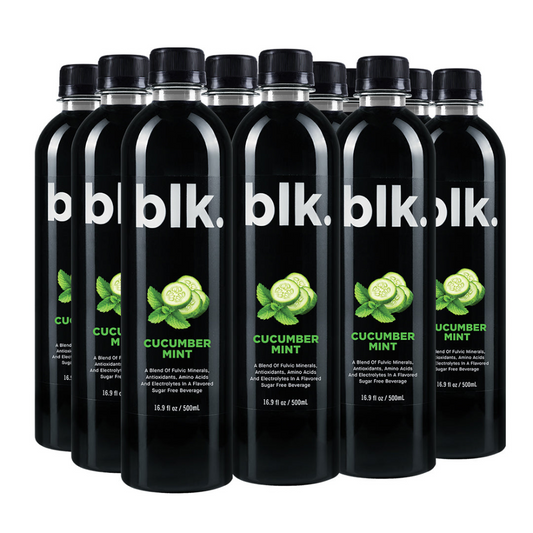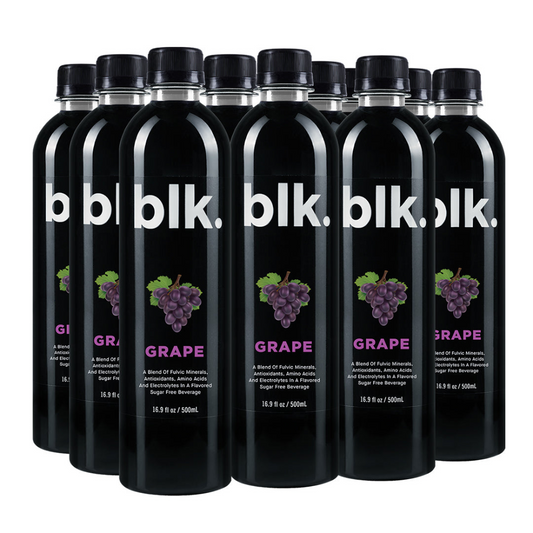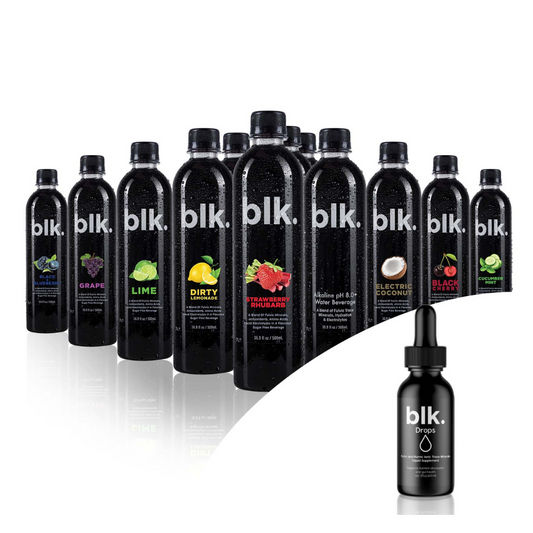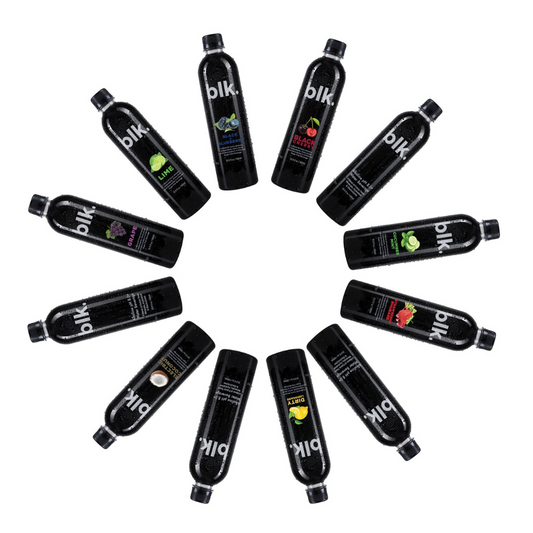
How Vegan Protein Powder Supports Muscle Growth
This Guide Provides Information On:
- How vegan protein powders support muscle growth.
- The different types of vegan protein powder.
- The differences between vegan protein powder and whey protein powder.
- How to incorporate vegan protein powders in a diet.
Protein powders are one of the most popular ways to introduce more protein into your diet, especially when looking to fuel workouts for muscle growth. Dietary restrictions like being vegan do not mean giving up on this important nutrition supplement and compromising their fitness goal. Most manufacturers now provide plant-based alternatives for vegan and vegetarian lifestyles. Vegan protein powder is versatile and can be added to water or smoothies for a filling breakfast or a post-workout drink for muscle strengthening, building endurance and recovery faster. Ripped.com is the leading online store in the US selling vegan protein powder, that shares everything you need about how vegan protein powder supports muscle growth. We also share the list of best vegan protein powder for muscle growth.
Definition of Protein Powder
Vegan protein powder is derived from plant-based foods rather than animal-based foods. It can be made from hemp, rice, soy, beans, nuts, and pea. The powder can be made from just one plant or a combination of various plants. Since they are plant-based, these protein powders are lactose and dairy free, making them a good option for those on a vegan diet.
Benefits of Vegan Protein Powder for Muscle Growth
Protein has more than one job in the body, which is why every cell in the human body contains protein. It's an essential nutrient that helps build muscle, create enzymes and hormones, and repair muscle tissue. Vegan protein powder contains 9 essential amino acids the body can't make alone. It, therefore, plays an important role in muscle growth and repair and speeds up the recovery process between workouts. Are you looking to add more protein to your diet? Here are some of the best vegan protein powders;
- Isopure: Natures Best Plant-Based Protein Chocolate 20 Servings
- Black Magic: Vegan Protein Peanut Butter 25 Servings
- Isopure: Natures Best Plant-Based Protein Strawberry 20 Servings
- Pure Vita Labs: Plant-Pro Vanilla Flavor 26 Servings
Types of Vegan Protein Powder
Vegan Protein powder is available in different types, including;
Pea Protein
Pea protein powder is made from yellow split peas, which have a higher protein content than sweet green peas. A quarter-cup serving of pea protein powder provides about 21 grams of protein and 100 calories. The protein powder is complete as it contains all 9 essential amino acids that the body cannot create, but it's a bit low in methionine. It's also a great source of branched-chain amino acids (BCAAs), mainly arginine, valine, leucine, and isoleucine.
Brown Rice Protein
Rice protein is a protein derived from rice, which, when broken down into smaller pieces, is called rice protein hydrolysate. Rice protein is not complete as it does not contain all 9 amino acids. However, it's rich in amino acids, so it's often added to other protein powders. It's also very rich in BCAAs, and according to a study carried out in 2020, vegan protein powder is just as effective in supporting muscle growth as whey protein.
Hemp Protein
Hemp is a powerful source of protein and fiber which makes for a great protein supplement. Unlike other proteins, such as soy, which require several steps to process to protein powder, hemp only requires grinding hemp seeds to a fine powder. It’s rich in fiber, with one serving providing about 11 grams of fiber, which is a third of the recommended amount for adults. It also packs all nine essential amino acids as well as omega 3 and omega 6 fatty acids.
Soy Protein
Soy protein powders are the oldest in the market. They are made from defatted soy flour, which boasts up to 90% protein. Soy is a complete protein containing all 9 amino acids the body needs. It also contains fiber, vitamins, and minerals such as calcium, zinc, and iron.
The benefits of soy protein include reducing blood pressure and hypertension and building muscle. It has also been found to destroy harmful cells in the body.
Factors to consider when choosing Vegan Protein Powder
With so many protein powders available in the market, how do you choose a product? The most important factor is ensuring you meet the required protein intake. You want to ensure you get all 9 essential amino acids the body cannot produce.
The vegan protein powders featured in this article were selected based on the following;
- Quality of ingredients: The protein powders contain high-quality sources of plant-based proteins. The products are also free of artificial flavours, colors, and additives.
- Nutritional value: The powders contain the nutritional value recommended by experts to meet the intake requirements.
- Price: We have included various products to fit everyone's budget without compromising on quality and nutritional value.
The Role of Protein in Muscle Growth
Proteins are the main building blocks of your body, meaning they are used in forming muscles, tendons, organs such as the skin, neurotransmitters, hormones, and enzymes.
How does Protein support muscle growth?
Muscles are made of protein, and as with most of the body tissues, they are constantly being broken down and rebuilt by the body. For muscle growth, the body needs to synthesize more muscle protein than is broken down, meaning you need to take the required daily protein intake.
People looking to build muscle require more protein and exercise often to grow muscles. A high protein intake also prevents muscle loss, which occurs during dieting.
Sources of Plant Based Proteins
Vegan and vegetarian diets might appear to lack sufficient protein, but that's not the case. A well-balanced plant-based diet can provide as many nutrients as a meat-based diet. Certain plants provide more protein than others, which is why it's important to plan accordingly. High protein diets are important for promoting muscle strength and weight loss and providing feelings of fullness for longer.
Here are some plant foods that contain a high amount of protein per serving;
- Tofu and Tempeh: Originate from soybeans which are considered a whole source of protein. These foods are especially popular in east Asian cuisine, and they contain 12-20 grams of protein per 3.5-ounce serving and iron.
- Lentils: A great source of protein, providing 18 grams of protein per cooked cup. Lentils are a great source of fiber, providing half of the recommended daily intake per single cup. They are also rich in folate, iron, manganese, and a hearty dose of antioxidants.
- Seitan: This is another popular source of protein for vegetarians and vegans. It's made from gluten which is the main ingredient in wheat, and closely resembles meat when cooked. It contains 25 grams of protein per 100 grams as well as selenium, iron, calcium, and phosphorus.
The most important factor to consider when selecting a source of protein is the amino acids. There are 20 amino acids found in nature, and 9 of these are considered essential. Your body cannot manufacture these amino acids, so you need to get them from your diet.
Recommended Daily Intake of Protein
Protein intake is essential for good health, but what is the dietary requirement? The recommended dietary allowance (RDA) is 0.36 grams of protein per pound of body weight. This translates to 54 grams a day per 150-pound person. Although this is the amount needed to meet your basic nutritional requirement, it's not the specific amount you should eat daily. It's basically the amount needed to keep you from getting sick. The amount needed depends on various factors such as age, activity level, overall health, physique goals, and muscle mass.
Vegan Protein Powder vs. Whey Protein Powder
There are differences as well as similarities between plant-based and whey protein powders, including;
How they are made
Whey protein powders are made by isolating whey, the liquid by-product. The liquid part is collected, and carbohydrates, water, and fat are removed, leaving the protein spray-dried into powder behind. Whey protein powder contains lactose since it's made from cow's milk.
Plant-based protein powders are derived from different plants, including peas, soy, hemp, and rice. It can be made from one type or various plants. These powders don't contain dairy or lactose, making them an ideal option for those who follow a vegan diet.
The two powders contain an average of 20-30 grams of protein per serving which is quite similar. Whey protein powder is, however, considered a complete protein as it contains all 9 essential amino acids and branched-chain amino acids such as valine, leucine, and isoleucine. Plant-based powders vary depending on the source. Plant-based powders are generally lower in BCAAs, with only soy containing all essential amino acids. Manufacturers, therefore, prefer combining plant proteins to ensure they form complete proteins.
Advantages of Vegan Protein Powder
Apart from the nutrient composition plant-based proteins have other advantages over whey protein making them suitable for vegans, including;
- Higher in nutrients since most plant sources are also rich in vitamins and minerals.
- High in fiber which aids in absorption and digestion.
- They are less likely to cause allergic reactions compared to whey protein.
- It may improve health benefits such as lower blood pressure, healthier skin, and stronger immunity.
Which is Better for Muscle Growth: Vegan or Whey Protein Powder?
Findings from a clinical trial that compared one vegan group to a whey protein group through 12 weeks of resistance training found no significant differences between the two. The researchers found that a high protein intake can support muscle growth and increased strength, no matter the source.
Another study compared whey vs. plant-based protein for muscle recovery and found no significant difference in the results between the two groups. The choice comes down to preference, especially for vegans and lactose-intolerant athletes, as well as price, flavors, or ethics.
How to Incorporate Vegan Protein Powder into Your Diet
There are different ways to enjoy vegan protein powders and incorporate them into your diet;
Pre-workout shakes
This is the most common way to incorporate the powder into your diet. The benefits may include a boost in energy, enhanced endurance during your workout, and possibly faster recovery.
Meal Replacement
You can add the powder to make a healthy meal replacement shake or smoothie by mixing the powder with some water with fruit or vegetables.
Baking and Cooking
You can incorporate vega protein powder into baked goods and meals such as morning oats to enhance the nutritional value.
Common Misconceptions about Vegan Protein Powder
Vegan protein powder has not been around for as long as whey powder. Some common misconceptions about plant-based protein powders include the following;
Vegan protein powder is inadequate for muscle growth
Studies have found vegan protein powders contain the same nutritional value as whey protein powder. Some vegan protein powder brands in the US also combine different sources to cater to the lack of essential amino acids. Plant-based protein powders are adequate for muscle growth as long as the required intake is met.
Vegan Protein Powder is Unpleasant in Taste
A wide variety of flavors are available in the market, and they can be improved by adding flavors.
Vegan Protein Powder is More Expensive Than Whey Protein Powder
The price varies between brands, but since you might need to combine several products, it can be a bit more expensive than whey protein powders. The availability and quality also affect the price.
Vegan Protein Powder is Hard to Find
The product is widely available online as well as in stores such as Ripped, specialty health food stores.
Conclusion
Vegan Protein powder is an excellent way to supplement your daily protein intake, whether vegan or not. It may also aid in muscle growth and repair of muscles post-workout. It's important to choose the right vegan protein powder for you, depending on your dietary needs. Excessive consumption of plant-based protein powder can affect the kidneys' normal functioning, so consult a healthcare expert before incorporating it into your diet.
Frequently Asked Questions
-
What is vegan protein powder?
-
Can vegan protein powder help with muscle growth?
-
What are some common plant-based sources of protein in vegan protein powder?
-
Is vegan protein powder as effective as whey protein powder for muscle growth?
-
Are there any negative side effects of using vegan protein powder?
-
What added ingredients could improve the taste of vegan protein powder?
-
Can non-vegans use vegan protein powder?




